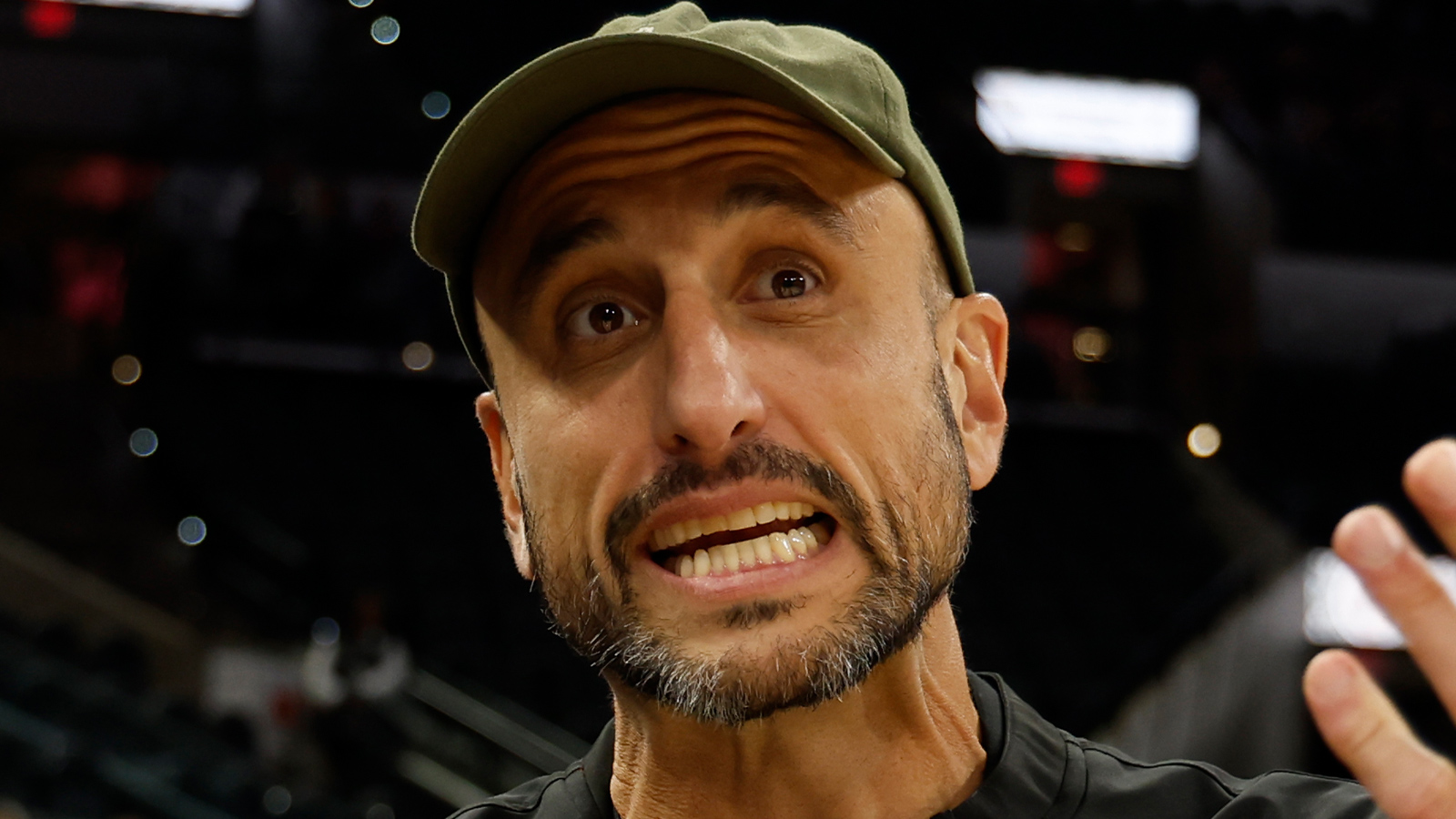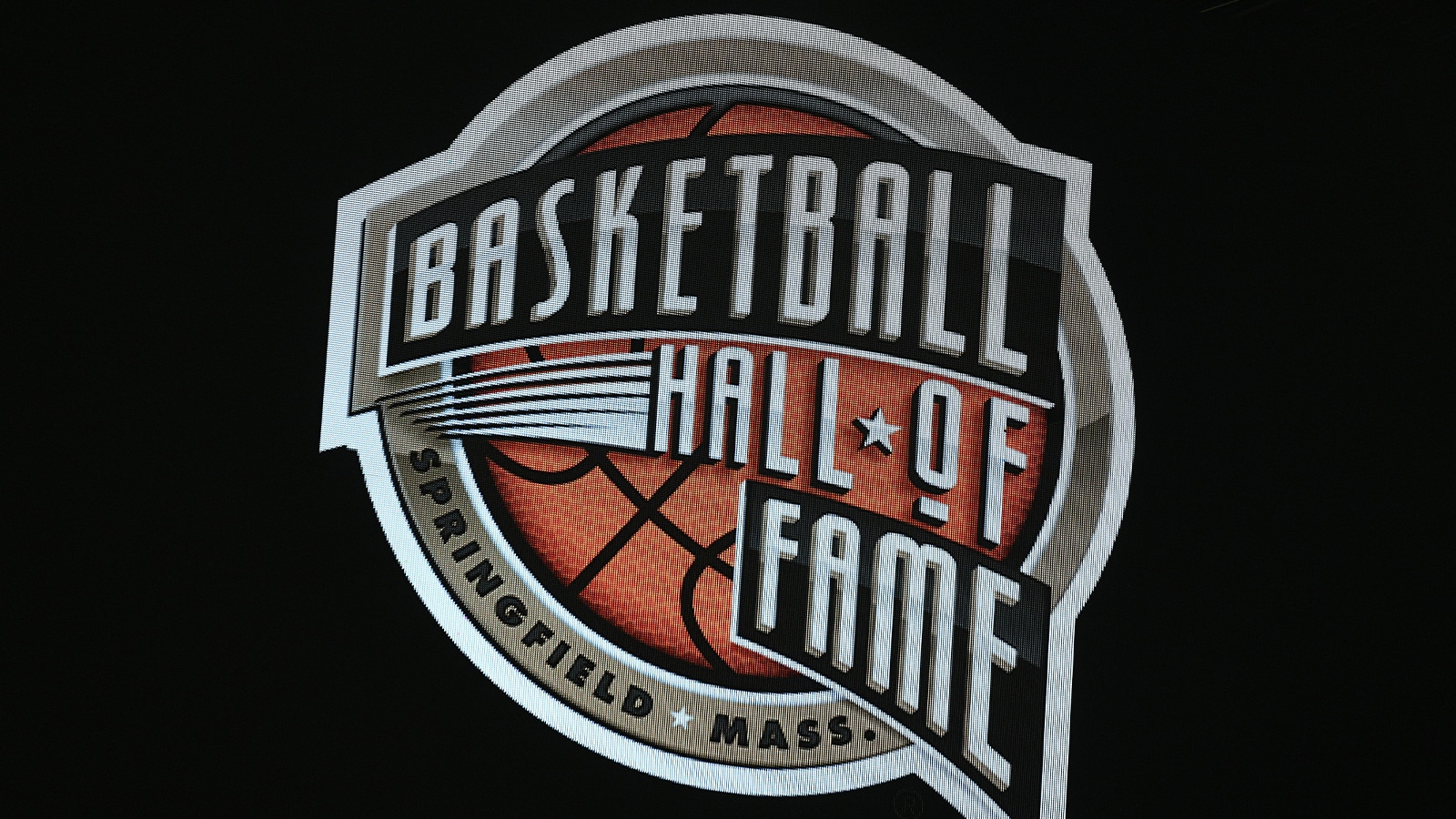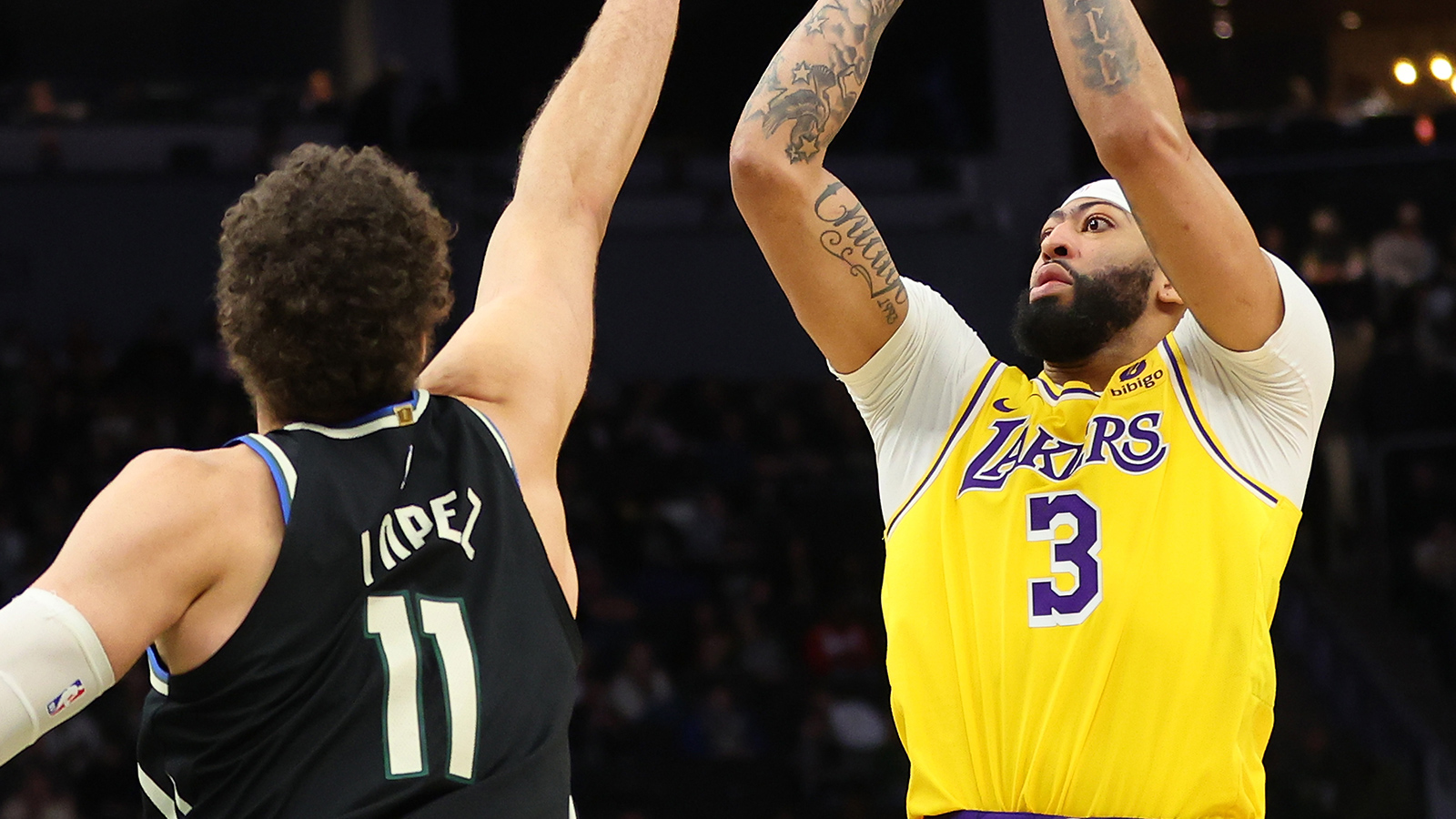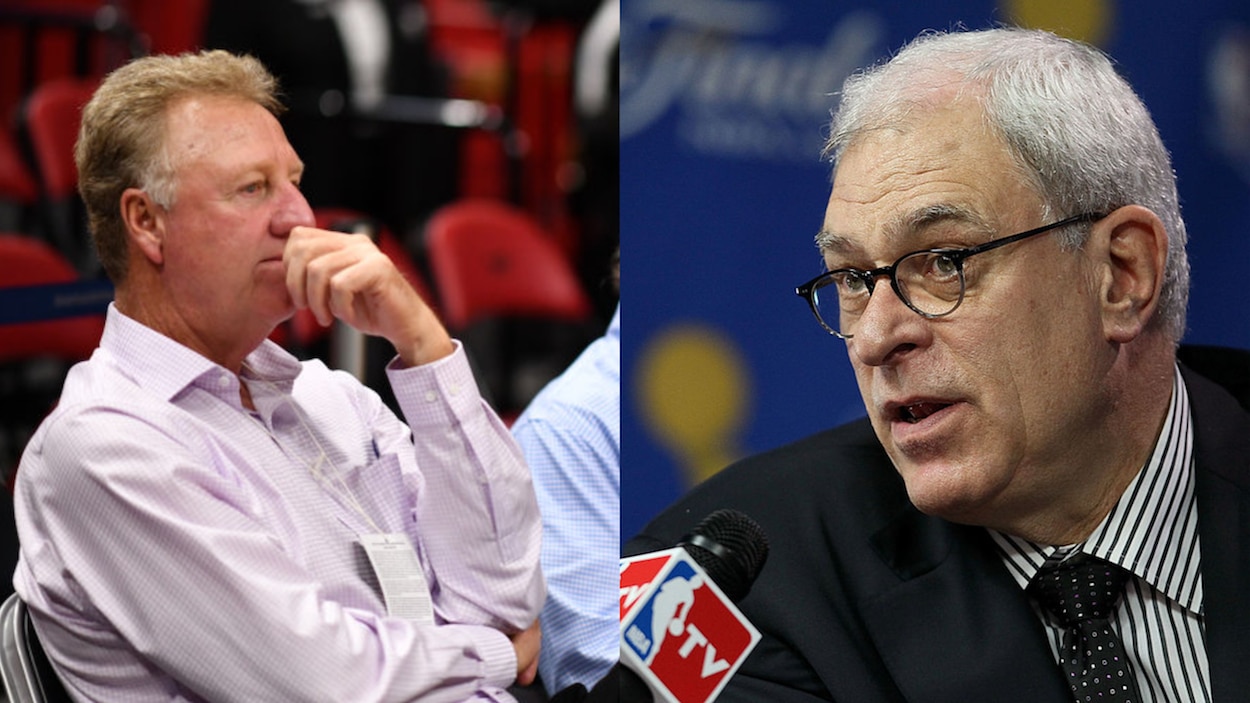
Larry Bird Once Admitted That He Was Skeptical of Phil Jackson’s Zen, Meditation, and Triangle Offense
During his time in the public eye, Larry Bird was true to himself. While fame and fortune could change some NBA players’ personalities, the Hick from French Lick stayed consistent. Whether he was showing up to receive an award in vacation attire or unleashing some of his famous trash talk, you were getting a pure, unfiltered experience.
That reality, it seems, didn’t change after Larry Legend retired. Just consider a passage from his 1999 book, Bird Watching, addressing Phil Jackson and his coaching techniques.
While the Zen Master had already found plenty of professional success by that point in time, Bird wasn’t 100% sold on his techniques. As you might expect, the forward was 100% sold on the idea of meditation, especially when you’re coaching some incredibly talented players.
Larry Bird didn’t seem 100% impressed by Phil Jackson when writing his book
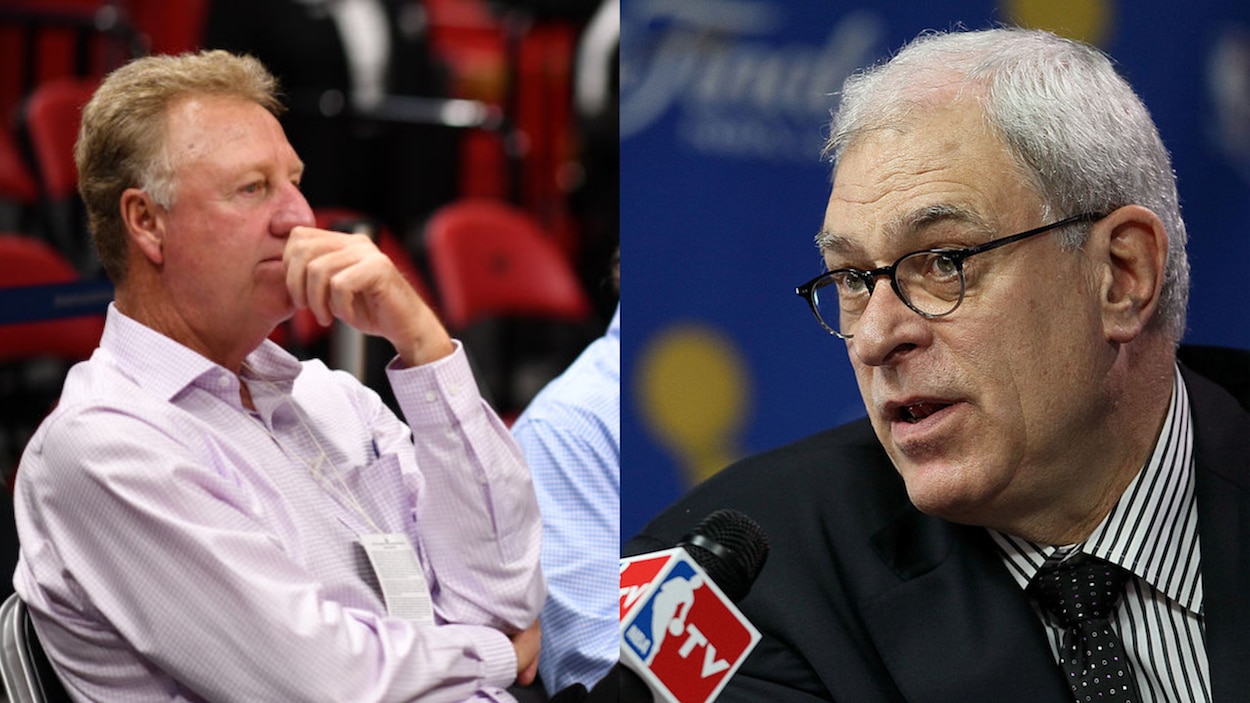
Based on his resume, Phil Jackson usually receives plenty of respect in NBA circles. Larry Bird, however, wasn’t entirely ready to kiss the ring in 1999.
“There’s been a lot of talk about Jackson and his Zen and meditation, which all sounds like a bit much for me,” the legendary forward wrote in Bird Watching. “You can get away with a lot of stuff when you’ve got the best player on the team.”
In a similar vein, Larry Legend expressed his doubts about Jackson’s famous triangle offense.
People talk a lot about Chicago’s triangle offense, but the one thing the Bulls don’t get enough credit for was their defense. You’ve got Michael Jordan and Scottie Pippen, probably the best two defensive players in the league, and Dennis Rodman, who can hold his own just by playing his position all the time and not even thinking about scoring. What coach wouldn’t love having those three on the defensive end? As for the triangle offense, it’s great if you have the right players, which Chicago did up until 1999. Take Jordan and Pippen out of the equation, and I’m not sure how effective it would be.
Larry Bird, Bird Watching
Before you think Bird was only throwing shade at the Zen Master, he did have some supportive comments about the legendary coach, too. Larry Legend went on the record as saying that he felt for Jackson after seeing how the Bulls organization treated him and gave the coach credit for sticking to his word about quitting after the Last Dance season.
It’s unclear, however, if Bird changed his mind when Jackson later took a job with the LA Lakers.
Bird’s take on Phil Jackson is a reminder that there are different styles of coaches that resonate with different players
Before going any further, there are some notes about Phil Jackson’s coaching. While plenty have expressed skepticism about his philosophies, it is worth highlighting that the Zen Master didn’t just suggest meditating and call it a day. A good portion of his success came from working with players on a personal level; it takes some skill to get Michael Jordan to buy into the triangle offense or make Dennis Rodman feel seen and respected as a person. That’s part of coaching, even if it seems fluffier than Xs and Os.
Similarly, working with talented players requires a special skill set. While having stars on the roster does make it easier to win games, it increases the possibilities of internal drama and locker-room tensions. Managing His Airness, Pippen, and Rodman was probably a full-time coaching task, and Jackson largely passed it with flying colors.
Moving onto a larger point, though, Bird and Jackson’s differences highlight something that can often be overlooked in pro sports: Coaches are part of the chemistry equation, too.
While it can be easy to imagine coaches as insignificant — What do they really do before call time outs? — or impactful in a negative way — Can you believe he didn’t call that time out? — having the right bench boss is a key part of building a successful team. Let’s use Jackson and Bird as an example of that.
During his time in Chicago and Los Angeles, Jackson excelled at bringing together some big personalities and getting everyone to (mostly) work together. Would you want him running a young team without a star capable of dominating both on the court and in the locker room? Probably not, and that’s OK.
Bird, during his brief spell with the Pacers, played things a bit differently. He was his same old self, not fussing about the schedule and encouraging his team to get physical with Michael Jordan, which resonated with an Indiana team striving to assert itself in the Eastern Conference.
Both coaches found success — granted, Bird’s time on the sidelines was much shorter than Jackson’s — suggesting there was validity to both approaches. Zen and meditation might be “a bit much” for some players, but it works perfectly for others. The same can be said for encouragement to knock an opponent on his butt; that could either be viewed as a license to come out of one’s shell or an overbearing instruction.
When we talk about building a team, it’s easy to focus on how the players fit together. Larry Bird and Phil Jackson, however, are a reminder that the coach is a piece of the puzzle, too.
Like Sportscasting on Facebook. Follow us on Twitter @sportscasting19 and subscribe to our YouTube channel.
